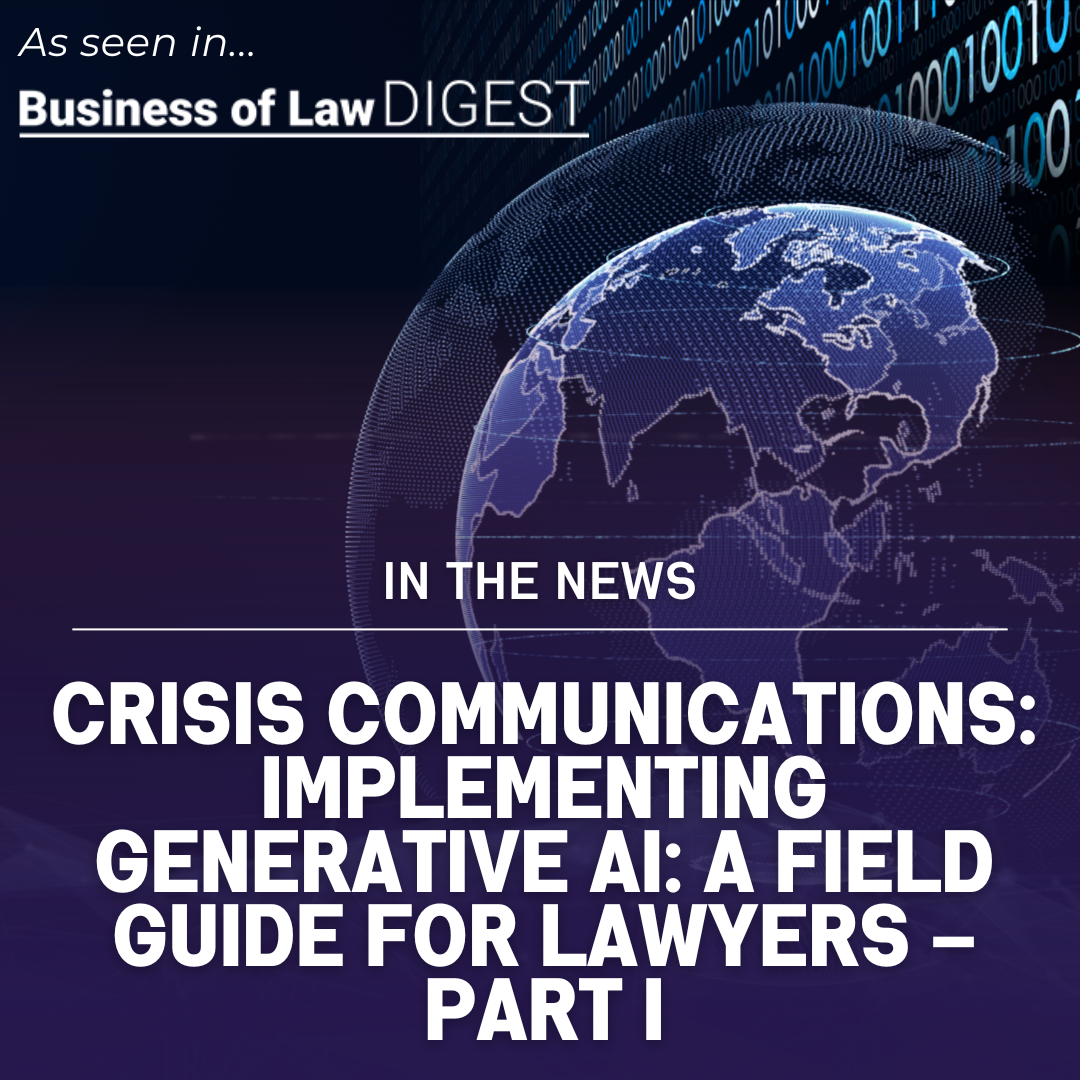Crisis Communications: Implementing Generative AI: A Field Guide for Lawyers – Part I [Published in Business of Law Digest]
When used thoughtfully and strategically by law firms, generative AI can be immensely helpful in day-to-day legal practices; it can help conduct research, draft documents, and even predict case outcomes. Furia Rubel CEO and general counsel Gina Rubel recently published an article outlining what legal professionals need to know when implementing generative AI.
Rubel provides an overview of the most important considerations for successful integration:
- Project scoping and feasibility
- Change management
- Measuring ROI
- Continuous learning
She also identifies key stakeholders who should be part of a GenAI implementation plan:
- Legal professionals
- Technologists
- Data scientists
- Ethicists
- Legal marketers and client value teams
There are numerous governance concerns law firms must address:
- Governance structures
- Data privacy and security
- Ethics
- Client confidentiality
Enforcing these governance policies requires:
- Technical capabilities
- Legal and compliance capabilities
- Organizational capabilities
Rubel emphasizes that law firms cannot afford to ignore these innovations: “For legal professionals, the genie is indeed out of the bottle. Now, it’s time to guide it responsibly, ethically, and strategically toward a new and brighter horizon for the legal profession.”
Related content:
- Generative AI: A Sample Policy for Organizations
- Using Generative AI to Power Innovation in the Legal Sector with Lydia Petrakis, Corporate Counsel and Digital Strategist at Microsoft
- How Generative AI Is Reshaping Digital Strategies in 2024 with Leslie Richards, Chief Innovation Officer of Furia Rubel Communications
Read Crisis Communications: Implementing Generative AI: A Field Guide for Lawyers – Part I
